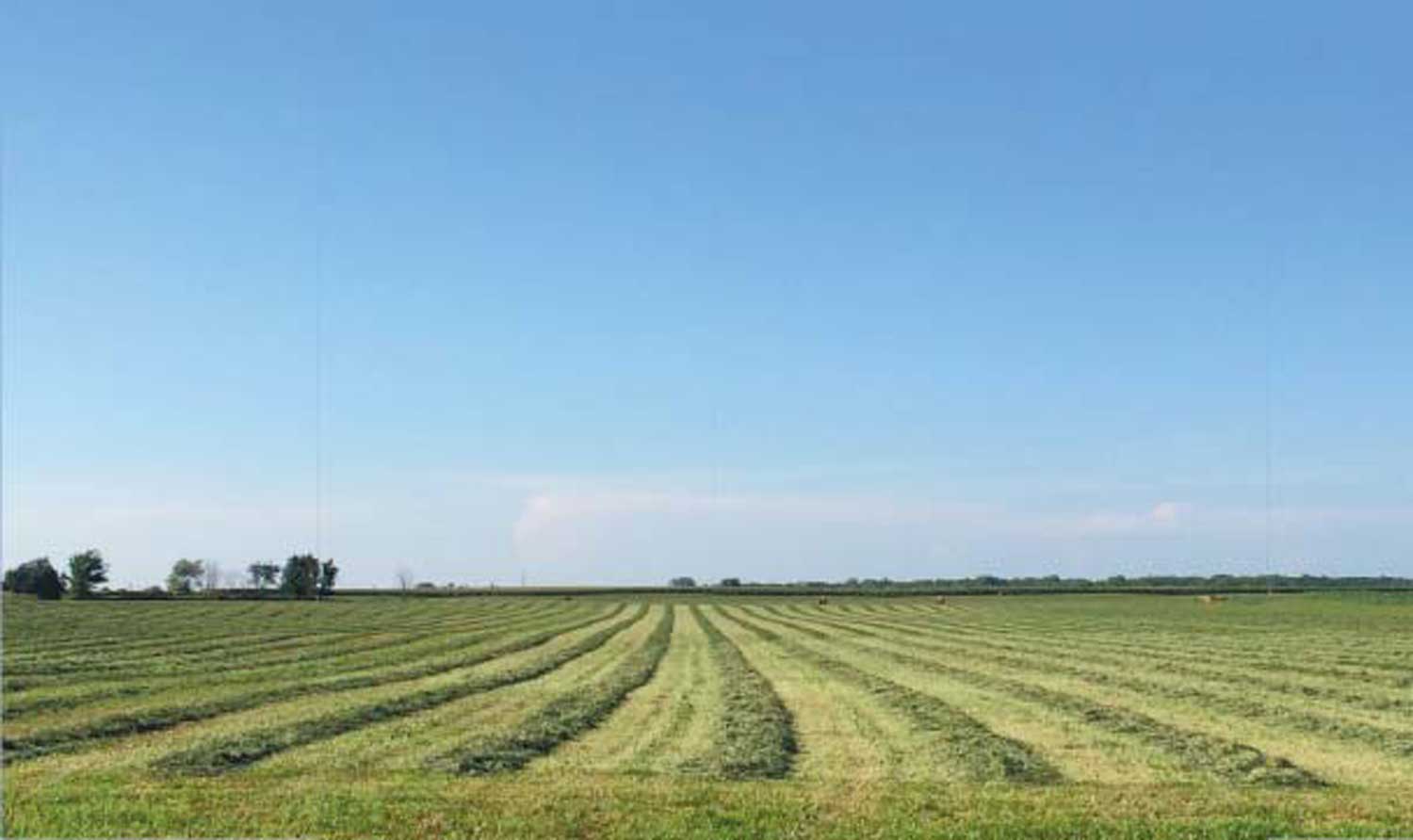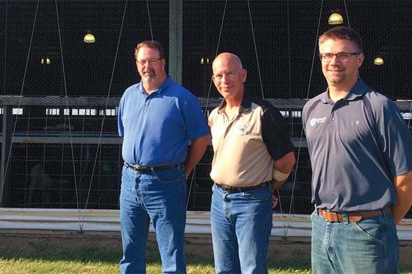Peninsula Pride Gives Voice to Local Farmers
“I’m not saying all farmers are introverts. Farmers just like to work in their own space. They see a problem and fix it,” says Dennis Frame, advisor to the new Peninsula Pride Farms coalition. “Most of them are not going to stand up in public and take credit for the good they do.”
Agriculture and farm life is foreign to most of society today. Farms often only make it into the news when something significant changes or goes wrong. This can leave a lot of questions in the minds of non-farmers. “At the end of World War II, 25 percent of the people in this country farmed. Now, only 1 percent farm,” says Don Niles, veterinarian, managing partner of Dairy Dream LLC, and president of Peninsula Pride Farms. “It used to be that, even if you didn’t live on a farm, your grandfather or grandmother likely had one you would visit. Now, the closest connection to a farm for a lot of people is a grocery store.”
Conservation and agricultural improvement have been practiced for hundreds of years; however, farmers have not focused on sharing how their work succeeded or failed.
The land is very sensitive to weather, seasons, soil, and many other factors. A family, who has worked the fields for generations, knows the farm like the back of their callused hands. They can read the changes in weather patterns or nutrient cycles and shift their practices to suit the farm’s needs. Peninsula Pride Farms provides a place to share the best ways to till, plant and harvest. It gives farmers access to one another’s hits and misses. “What we see statewide now is that, within the last five years, a farmer-led initiative has become a focus around the state,” says Frame. “Instead of farmers looking to government to ask ‘What should we do?’ they are sitting around tables asking each other ‘What are you doing? What can we do?’ That’s really innovative.”
In the spring of 2016, Peninsula Pride Farms became a 501(c)(3) nonprofit organization focused on supporting agriculture in Door and Kewaunee Counties. According to their mission statement, member farms must be ‘caretakers of the environment.’ They are “committed to protecting, nurturing and sustaining our precious soil, water and air.”
For the first year, the nonprofit limited its membership to just 40 farms, which range from large to small, dairy to crop. Together, farm members cover roughly 54,000 acres and 34,000 cows. This winter, Peninsula Pride Farms will open up membership to interested farmers.
Most of the farms have been here for generation after generation. There are many large farms in the counties now, but most are families who started with a small farm and built it up over the years.
“Farmers respect their neighbors’ opinions and ideas because they are all in the same boat. It’s powerful to see them work together,” says Nick Guilette, certified crop advisor, co-owner of Guilette Farms, and Peninsula Pride Farms member.
Peninsula Pride Farms’ members meet regularly to discuss the best local management practices. Tracking the process and progress allows them to measure improvement. Quantifying their efforts will help them find what works best for the area and each individual farm.
The complex surface and groundwater issues are chief priorities for the group. Peninsula Pride Farms readily admits agriculture’s role in the water problems. Farming takes up the largest land base in the counties and has a significant impact on water purity.
Frame explains how farmers are constantly challenging themselves and each other to be sustainable. “How do we keep nutrients in the soil where we need them to be productive for our crops, how do we keep soil in place and out of waterways, what is our role, and how can we be better stewards?” Surface water problems are often seen through algae blooms and sediment changes in our lakes, rivers, and streams. Field runoff is one common cause.
“There’s a big conversation happening on trying different practices to reduce the amount of sediment that reaches the water. It’s all about keeping [the nutrients] in place on the field where we can utilize it to have a healthy, productive crop,” says Guilette.
Groundwater issues have been around for decades. The cracks and fissures of the earth move water incredible distances. A problem that occurs in someone’s tap in Kewaunee could have originated somewhere far away. “We’re on very fragile soil. It’s a thin layer of soil with fractured bedrock getting down to the aquifer. It’s very easy for what we do on the surface, whether from a farm field, golf course or a house’s septic tank, to get down into the ground water because there is little filtration that occurs,” says Frame.
Recently, the coalition announced Water Well, a proactive initiative to provide well inspections, bottled water and help covering the cost of water treatment systems to residents with possible well contamination.
Secretary Cathy Stepp, head of Wisconsin’s Department of Natural Resources (DNR), recently thanked the organization for this commitment.
“This is a large proactive step toward providing solutions to the issues facing businesses and citizens in karst areas with shallow soils. It is even more impressive that this offer is available regardless of the source of the e-coli, whether it is from agricultural activities, a septic system or even from the well itself. Peninsula Pride is to be commended for not only the voluntary offer itself, but the spirit of helping neighbors through which it is made. This is local initiative at its best…”
The DNR recently announced that it will begin adopting new rules for manure handling specific to the Karst region via the administrative rule process. Protecting the public’s drinking water in at-risk Karst geo-regions was one of the major objectives of 2015 Door/Kewaunee Legislative Days, a biennial citizen-based lobbying effort that brings significant issues to Madison. According to Rep. Joel Kitchens: “It would have been very difficult to accomplish this through the legislative process. This issue affects a small number of Wisconsin counties, so I have been lobbying for it to be done this way.”
Farming is not just head-down, hard-muscled field work. With advancements in science and technology, farmers have more data to help determine the most effective practices. However, making sense of these opportunities is a challenge, which Peninsula Pride Farms is eagerly taking on.
The organization recently held a field day and invited farmers to learn how to measure the depth of the soil over the bedrock. The thinnest soil is the most sensitive and is common in the Door and Kewaunee Counties. Once a farmer knows where the shallowest sections of their fields are, they can tailor their approach according to the soil’s needs.
“Farmers have a lot invested in this land. It is their heritage. The care for the land and environment has always been there. Most of the farms have been here for a long time. People take huge pride in that,” says Frame. Niles points out many past practices that farmers would never consider today. Over the last few decades, science has proven healthier methods achieve better productivity, which improve life for farmers, land and livestock. “There are so many good things happening in agriculture,” says Guilette. “Collectively, we have a little bit more powerful voice and that message can resonate a little bit better.”
Niles wants to establish an open dialogue between farmers and members of the community. He wants to invite everyone to come see what today’s agriculture world is really like.
“Come out to our farms,” he says. “We try to maintain a pretty transparent organization. We’re willing to talk about what we’re doing to just about anybody who will listen and we’ll listen to whatever thoughts they may have for us.”






